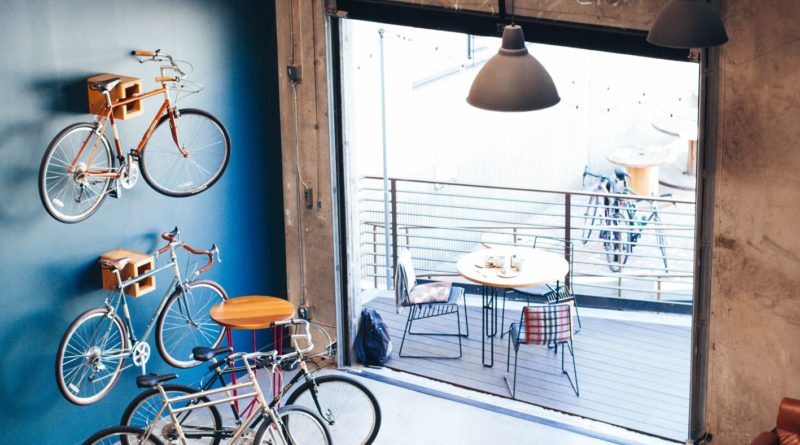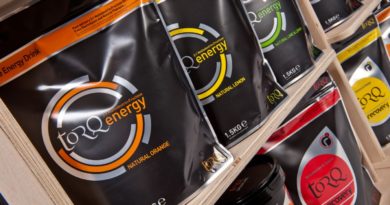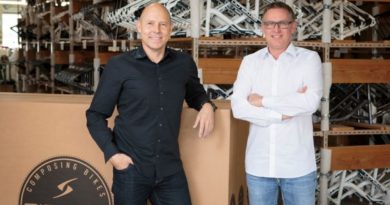The many faces of bike retail: how the model is ever evolving
The image of modern bike retail that is likely to remain in many consumer’s minds is a far cry from what may be the reality today. CI.N takes a moment to see just how far we’ve come from the sea of wheels and what evolutions of the model now exist in the marketplace…
Search any stock image site for a picture of bike retail and, if you are lucky enough to find a match, invariably it’s an image of a time gone by, a time when the typical bicycle retailer had a different playing field to contend with in terms of competition, stock choices and profitability priorities. The term “sea of wheels” was banded about with negative connotation in the trade left, right and centre as a new image of what bike retail should look like began to appear.
Though it’s nobody’s business to tell you how your store should look and operate, consensus began to form behind the idea that our showrooms were a sore thumb on high streets. Doors that have fallen victim to countless pedal strikes, muddy carpets and don’t even think about entering with a backpack on unless you want a bill for destroying a POS unit packed into an isle.
Time does not stand still, however and the phrase adapt or die has never been more apt for the moment. Where bike retail door numbers we in decline leading into the pandemic, suddenly a new playing field emerged representing a chance for many to revitalise and revamp in the face of a barrage of accelerated trends both in bikes and consumer retail.
So, which business models survived and thrived the ultimate stress test of a black swan event and how did bike retailers, traditional or not, adapt when the going got tough?
Brand-owned, but incognito
Becoming most pronounced in the USA, the competition for prime locations owned by brands has reached new peaks and the ripple effects are being felt in Europe too.
This year the territory grab has seen long-term Trek stores cease to carry the brand where rival Pon has bought retail chains such as Mike’s Bikes, which has itself gone on to expand its footprint with buyouts of other small chains such as Denver’s Elevation Cycles. These stores have maintained their independent bike store identity, but the brand make up is now increasingly representative of the parent company’s portfolio. In the case of Mike’s, once a leading Trek footprint, the stock is now represented by Santa Cruz and Juliana, newly PON-owned Cannondale and, for the urban cyclist, Gazelle. That’s not to say non-owned brands do not feature, they do, but for competitor labels there may be no guarantee of prime positioning as time goes on.
For PON, securing electric bike sales ahead of its competitors meant a turnover in 2021 of €1.3 billion delivered via a combination of physical retail branches, its new Santa Cruz, California Experience Centre and sales generated for its brands online.
In the UK the trend is thus far less pronounced than across the Atlantic, but that’s not to say brands are not quietly buying up retail space with promise. Most recently Specialized bought Infinity Cycles in Durham.
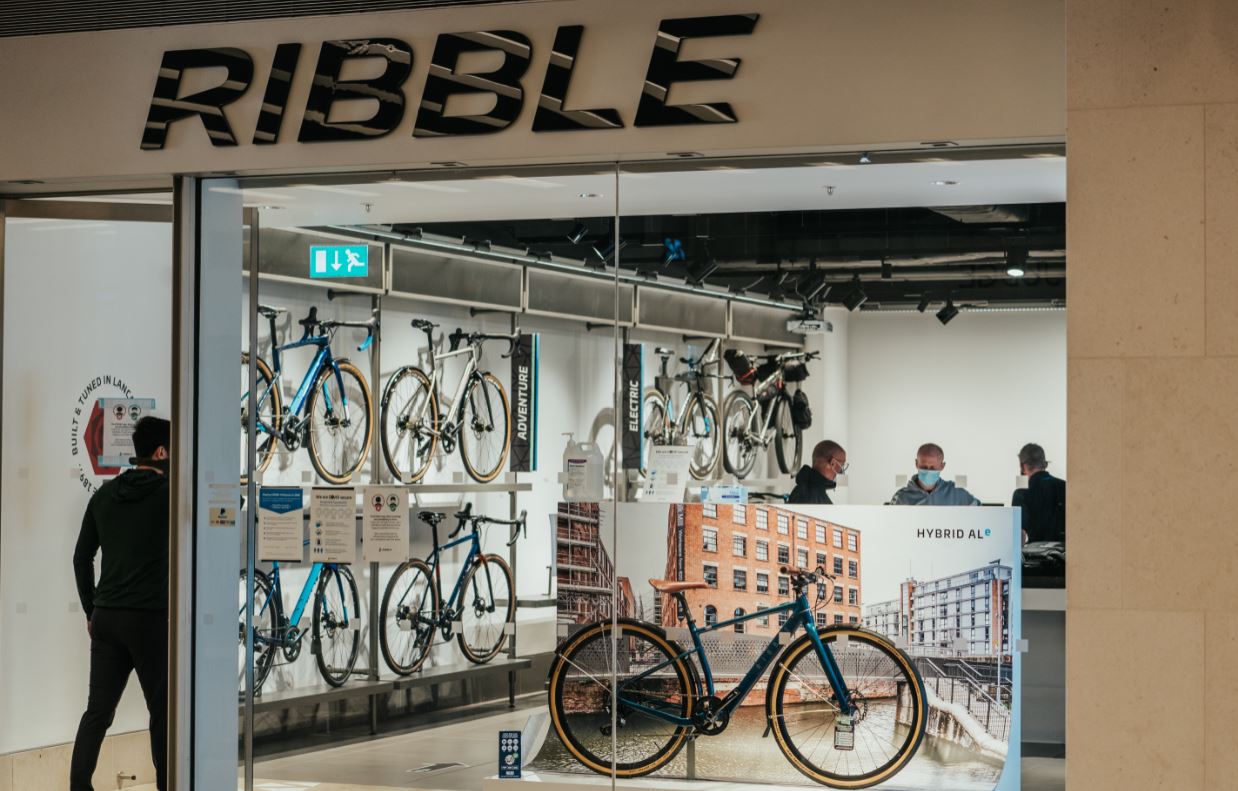 Brand-owned, explicit
Brand-owned, explicit
Ribble, Vanmoof, Brompton, Specialized, MATE, Giant and many more – all have their branding explicitly plastered on header boards in the UK. Brand recognition has become a key battlefield as labels fight for their corner of the market. Increasingly the battlefield is for high ticket electric bike sales, but in Brompton’s case it is to put a stamp on its authority as a leading choice for the city commuter in any given city.
Brand experience centre
Another sub trend for the larger labels is to open experience centres. In Europe and the USA Gazelle has opened destinations for customers to visit and fully immerse in the brand experience, as well as having access to the full fleet with a view to demos. In its domestic Holland six such centres span the country, most of which are dedicating the majority of their resource to the electric bike introduction. Bookable via an online system, the concept has now expanded further to reach Belgium and Denmark, as well as the aforementioned California centre.
It appears Specialized will now follow this path, announcing in June an experience centre of its own in bicycle business hub Bentonville, USA. Opened by this Autumn, the approximately 4,200 square foot property will sit within a mixed-use building that is designed to be a community hub. For Specialized this centre further complements its new sales strategy of multi-channel sales, including those made directly to the consumer. In this case the centre would offer up a try-before-you-buy experience to take the uncertainty out of an online purchase.
 Mobile mechanic
Mobile mechanic
The mobile mechanic operates from either van or cargo bike and typically selects a radius they’re comfortable servicing, sometimes collecting and returning, or alternatively servicing on site. Some win corporate contracts that last days at a time servicing fleets, while others bounce from one individual client to the next. CI.N’s annual report had 10% describing their business as mobile servicing.
Paul Ashbrook is one such mechanic combining both mobile and home servicing, he’s a veteran of the model too, having 11 years ago gained a Cytech Two qualification ahead of securing contracts to assemble bikes for mail-order retailers in West Yorkshire as part of the Cycle Assembly Network.
Operating under the Tall Paul’s Cycles banner, Paul works alongside a local bike shop and for himself, becoming slightly over run during the pandemic when local shops closed briefly.
He tells us his philosophy in business is to keep people rolling without any judgement of the bike they bring to him. “The government ‘Fix Your Bike’ voucher scheme started and I registered as a repairer. This brought me a lot of custom, and I saw people who were encouraged by the scheme. Some people had unrealistic expectations of what £50 would get them. Some admitted that they were embarrassed about taking a rusty, neglected, bike to a shop. Others said they felt bike shops – particularly the high street brands and the more high-end shops – were intimidating, were overcharging or upselling, or were simply not interested in the work. I’ll just say that you won’t hear me say ‘It’s just an old bike’.”
We’re curious, how perilous is it being a small and mobile service outfit at a time when key parts are in low supply? Paul is open on the supply issue, telling us there are of course blanks in his inventory, but that the main drop off in trade has come from mail order flat-pack assembly jobs. He concludes “I’m back to thinking about selling parts and accessories online to help in the quieter times. Customer numbers are generally up, with about 10% of voucher-holders returning, and others coming to me because the local shop has a long waiting list for services.”
Workshop only
A fixed workshop destination has become an a popular choice in UK bike retail and in fact CI.N’s house research had 22% of respondents describing their business this way.
Why the sharp transition toward service trade versus sales? We asked around and consensus centred on profitability, space required (and thus overheads) and in recent times no shortage of work.
Now becoming more common are chains of workshop only traders, such as Fettle or Havebike.
Demo Centre
Bike shops pitched up at a destination have a captive audience and can very quickly become intertwined in the community. Take Peaslake’s Pedal and Spoke, undoubtedly one of the smallest bike shops in the country, but that has not stopped the business becoming a leading Santa Cruz demo centre and workshop for those using the nearby features. At a time when high street landlords are pushing prices skywards and thus creating barren shopping districts, what’s not to love about low overheads?
So, how resilient is the demo centre bike shop? We asked Mark Almond, who has been there and done it with Revo Bikes, formerly found at Bike Park Wales, but now sadly closed.
Of the pros of setting up where Strava segments are hotly contested he says: “You have an enthusiast market delivered to your door. There’s the chance to help develop the trails and run ride nights/days, or run shop events from the doorstep. No immediate competition for repairs, which invariably will happen is a perk. It’s ideal for demo fleets, brand demo days and try before you buy. Likewise, it’s ideal for online/destination packages to be sold, so the location is a great marketing tool.”
Going against the norm, inevitably, has its drawbacks too. “Weather stops play,” says Mark, so low-season can drag. For those considering it nonetheless he adds “tender practices can be very precise and prescriptive as to how you can run your own business. A very close working relationship is needed with the trail managers to succeed and the whole business success can depend on that relationship being strong.”
Add to that the difficulty of attracting staff to a remote location and have them work weekends and in the current recruitment climate many may be deterred. Mark concludes with a note on the perceived captive audience value, telling us it’s not so straightforward when riders expect to give their bikes a beating. “Many riders bring spares in their cars and will expect internet pricing on parts they haven’t got,” he adds.
Single sector store
Not quite as prominent a feature of the retail landscape until the electric bike market took off, nowadays 60% of bike stores class themselves as “electric bike specialists”, according to CI.N research. Among those are businesses whose sole focus is the pedal assist market and increasingly those stores that started as a sole branch have gone on to very quickly add additional stores having enjoyed the high-ticket high demand conditions through the pandemic.
 Speciality service retailer
Speciality service retailer
There are a number of retailers who have come to market with a very particular set of skills, skills they may have acquired over a very long career on the fringes of the bike shop, but have now integrated as a complimentary service.
Cyclefit is a prime example of a destination that sells some incredible bikes and frequently hosts the pros, but they come not for the bikes. Instead people (even the pros) book in for the fine tuning of their fit and aerodynamics. The add on sale of a loaded wind cheating machine is but a perk of years of fine-tuned and hard to find experience.
Another is Befitting Bicycles, run by Isaac Denham. Isaac’s original business plan was reliant on Bike fitting, repair service, custom bikes, and just in time inventory. The latter part of that plan, like many other plans, was shot apart by the pandemic, but thankfully where stock bicycles have increased in price and lead time, the ability to custom build at the high-end quickly and for often a lower cost has seen business sustain.
On this he explains “in 2019 an Sworks Tarmac was $11,000 and lead time was almost zero. In model year 21/22 the same build tarmac was over $14,000 and the lead time was often 6- 9 months out. Suddenly a $12,000 custom bike that could be custom fit, painted and built to spec in 4-6 months sounded very reasonable.”
The model has stood up to the test with a bit of agility factored in around a steady bike fit clientele. One adaptation was to raise service pricing to account for the time spent hunting down parts for customer’s builds, but at the high-end this fee is shrugged off more often.
Isaac concludes: “the last change have made over the last few years is adding bike fit education classes, adding a revenue stream where the client is other shops instead of end consumers. Not every shop is able to offer that kind of service but, every shop can offer something to the community beyond the bike sale. We have been successful because we have focused on selling Befitting Bicycles, not any particular brand.
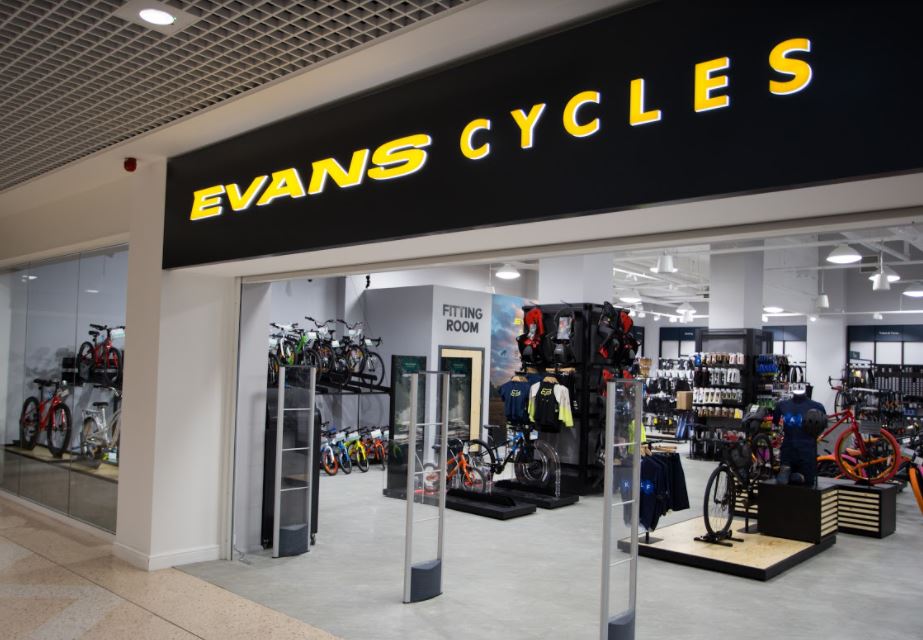 Chain store and big-name buyouts
Chain store and big-name buyouts
The landscape of the UK bike retail chain has changed drastically in the past few years. Gone are the Cycle Republics and the Cycle Surgerys and of late, in has come investment from a plethora of new channels.
Some of the most recent developments have come in the form of buyouts of established retail giants. Take JD Sports and its buyouts of Leisure Lakes Bikes and Wheelbase last year, as well as its 80% holding in European sports retail giant Deporvillage. Add to that ownership of Go Outdoors and the JD Sports empire is now mixing with the largest in bike retail.
Evans Cycles and Tri UK came under the wing of Sports Direct in 2018 and, having found the pandemic a turbulent period for trading, now appear to be racking up openings and investments once more; seven branches have opened in 2022 already. The business lays claim to having the largest property portfolio of any chain in the UK at present and with the broadest coverage.
A relative newcomer, but already with a substantial presence in key areas, Pure Electric began life by taking on numerous former Cycle Republic leases. Having begun life as Pure Scooters, quick adaptation was required to the privately funded business when delay to legalising private scooter ownership became evident; that obstacle will now lift with the creation of a new light electric vehicle category. As a result, recently the business has tilted back away from bikes and announced it will focus solely on scooting.
The lines between traditional chain and indie store chain are increasingly blurring as store portfolios balloon. Some notable portfolio swells of the past few years include The Electric Bike Shop (10 stores), Balfe’s Bikes (12 in London) and Rutland Cycling (12 spanning the midlands). Others with a sizeable retail estate includes Cycle King, which nowadays has 23; Cycles UK with 7; Richardsons Cycles with 6; Edinburgh Bicycle co-op’s five and Hargroves Cycles’ 4.
 Pop up store, or store-in-store concessions
Pop up store, or store-in-store concessions
Need a quick brand activation to reach new customers or need to test the market with a few ideas? The idea of occupying either a pop-up shop or taking a temporary space within a larger retail centre has become popular in order to get outside of the bubble and target new footfall. For brands and retailers alike the exercise can be useful for market research and to test the market with products or ideas. Ortleib very recently set up at London’s bustling Boxpark venue, a meeting point for Shoreditch workers after anything from a bite to eat through to boutique shopping. Before the cycle luggage label arrived, eBike brand Mate introduced its product to Londoners utilising the low-overhead shipping container retail space.
Nils Amelinckx with UK distributor Lyon Equipment recapped on a one-week trial residency during the Queen’s Jubilee. “We had not done before and didn’t want to commit too much just in case it didn’t work. The occupancy tied in with the 40-year celebration of Ortleib and we opted to focus the energies on the travel and rucksack segments in order to try to branch out, but being London mostly visitors were showing up looking for cycle luggage, some coming across the city to see us. Perhaps if we had taken some cycle luggage we would have achieved more, but as a marketing exercise it was excellent and we’ll likely do it again.”
In terms of in-store concessions and bike retail link ups with department stores, London’s Velorution has in the past seeded its spot as a leading city retailer of electric bikes with the often affluent customers in Selfridges. Likewise, fast-growing Bike Club, a kids’ subscription service for bikes costing as little as £4.49 per month has struck up a relationship with John Lewis to have a presence in selected branches. Starting with the Stratford location the partnership specifically targets browsing parents who may be browsing for something entirely different.
